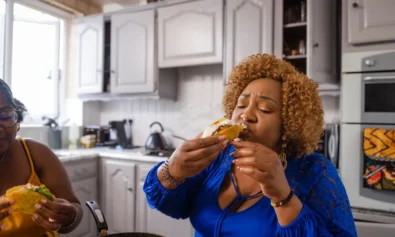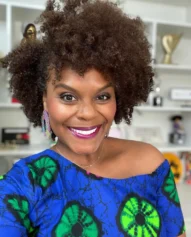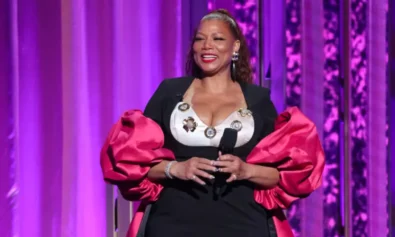West End is a predominantly Black historic community in Atlanta that has been a destination for vegan and vegetarian eateries for decades. We highlight some key players in the neighborhood who are changing the community one healthy meal at a time.
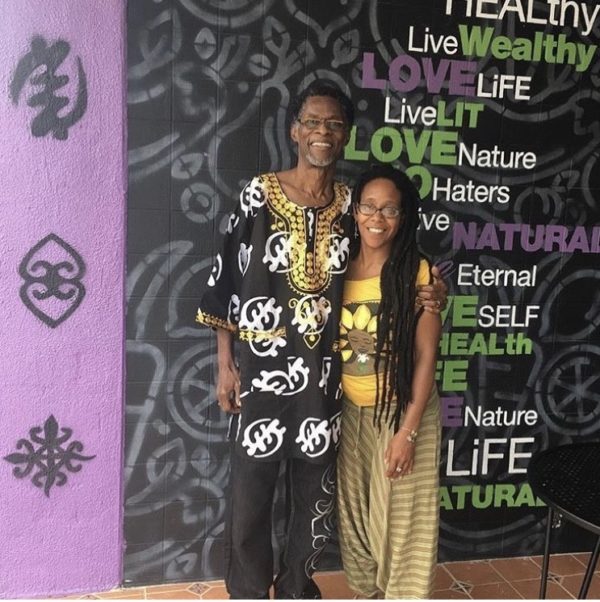
Name: Jeanette Sellers
Hometown: Belle Vernon, Pennsylvania
Years in Business: Three years
Eatery: Wadada Healthy Market
Where: 878 Ralph David Abernathy Blvd SW, Atlanta, GA 30310
Tell me about your business and how did you get started.
I’ve been an entrepreneur for 20-plus years now, and I’ve always tried to look for ways that I could impact my community and give a platform for expression to our culture. I’ve had a boutique (Axum Culture) for about eight years now. I always listen to what the needs are in the community. I started looking for other locations for my existing business, and I came across this space that I’ve actually been eyeing for about eight years, and it was right down the street. It was a lot of uncertainty about what was going to happen with my building, so when that space became available I had to make a decision. Did I want to move my business there or what did I want to do with that location? I kind of listened to what’s happening in the community and what we need, and so I tried to bring a business that will create a solution to some problem that we have.
What does your menu have to offer?
Our specialty is sea moss smoothies. [Sea moss is a type of algae that is grown in places like the Caribbean islands as well as Ireland. It’s considered a superfood and is said to have healing properties.] Most of these superfoods that I use have traditionally been used in Africa and the Caribbean and tropical indigenous areas that heal and have been used to boost great health in their community. We also offer cold press juices, healing herbs, as well as healthy, vegan grab-and-go food, (vegan) ice cream, other tasty treats. Our signature line of sea moss smoothies, they all have their own personality and they’re created with ingredients that — for example, all of our signature smoothies have ginger in it and ginger is a very important superfood that helps fight heart disease. … We have a small food selection that includes vegan soups, Jamaican veggie patties and vegan lasagna.
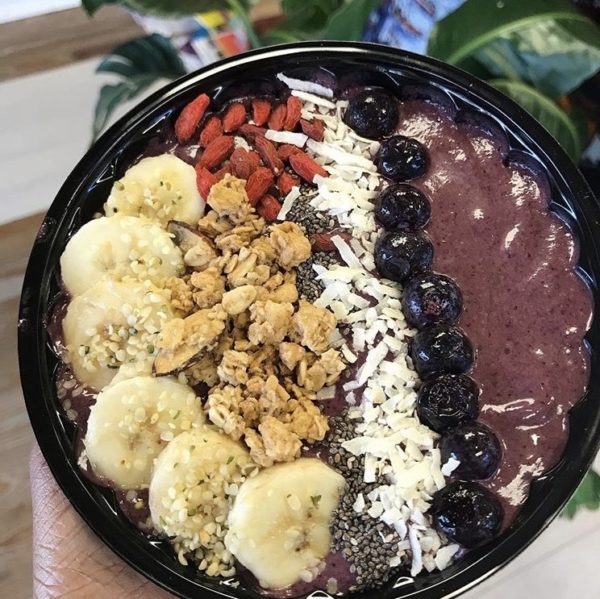
Why did you choose to open your business in the West End?
I’ve always been drawn to the West End. There’s just so much culture in the West End. Even when I was living outside of the West End in Decatur, I had everything in the West End. Everything was here. It was like a little cultural makeup. My children went to school here, there were African-centered schools here, there’s such a rich cultural history that was here. I had my cultural boutique here, and we’re going into the eighth year and we’re alive and ticking. I also reside in the West End, so I really wanted to put my business in a place where Black culture already existed and in a Black community where we are based but there’s a foundation to build on.
There have been complaints over the years about Black communities not having access to healthy food, but West End seems to be a hotspot for vegan and vegetarian eateries. Why do you think that is?
It’s the rich history. The type of culture that’s been established there early on of like-minded individuals. You’ve got Soul Vegetarian, probably being one of the first that have managed to sustain itself over a number of years in the West End. I remember coming here and there was a very big Rastafarian culture community and there was a business called Eternal Life, and they also provided vegan food. So I think there’s just been a rotation of like-minded individuals and businesses that really encourage that healthy, vegan lifestyle.
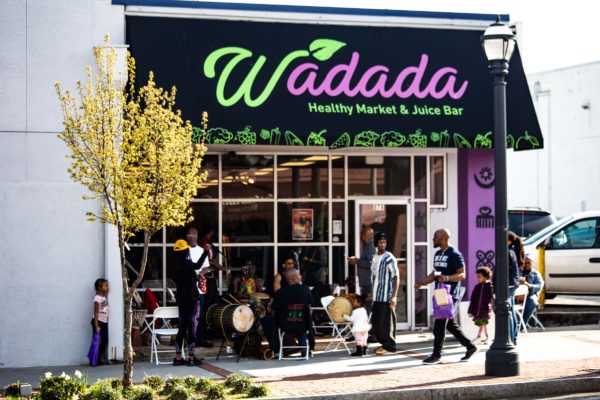
With an uptick of businesses and people moving into the area and the Atlanta Beltline expansion, West End seems to be experiencing a resurgence. However, gentrification has also been a concern for many. How are Black business owners responding to gentrification?
There were a couple of people that brought some business owners together to try to organize [but] some of those efforts didn’t really last unfortunately. I think it’s a very uncertain and a scary time for many businesses. I’ve seen businesses that were displaced. They’ve gone to other places, College Park or East Point or some have found [other] places in the West End. So that’s what I observed. I also looked to find another place to establish myself. My response has been to [avail] myself of the resources. There’s other resources here particularly for that. To make sure that the businesses that have been here and anchored these communities, we stay here, and so there’s Invest Atlanta, there’s ACE [Access to Capital for Entrepreneurs].
These businesses are aware of what can happen when gentrification occurs, so they have funding. I was able to obtain funding through Invest Atlanta, through ACE, a couple of other organizations. A lot of problems that we have with our businesses is getting access to capital and that helps to give you that longevity. I really had to abandon that idea that I had to bootstrap, and for a very long time I was very proud of that. Bootstrapping — using my money, all of my resources to build my business — and I really had to abandon that and get outside funding if I was going to be able to stay in this area.
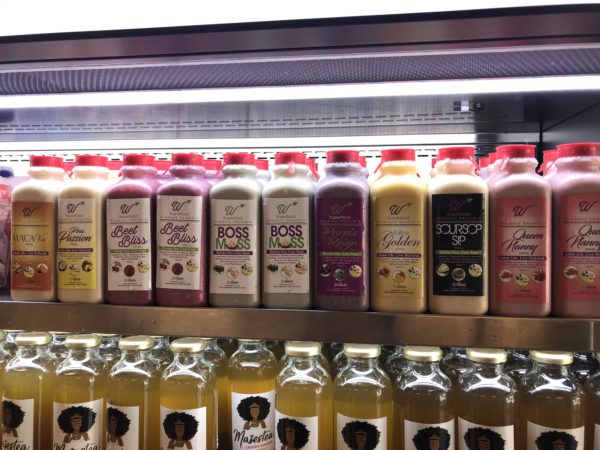
What do you want your role to be in the community?
I’ve learned so much over the past 20-something years being an entrepreneur and I think in the past three years with Wadada, it’s taken me to another place in my business and it’s taken my business to a new level. I want to be able to share that with other aspiring entrepreneurs and how to create a sustainable business because that’s my goal. At the end of the day, if we’re not able to pass on wealth to the next generation, then we’re falling short. So what I’ve learned in terms of gaining access to capital, there’s a formula for that and I‘d like to share that information with others by example and maybe through teaching in the future.
How would you like to see the West End community five years from now?
I’d like to see Black business and culture continue to thrive in the West End. Wellness is our birthright and that’s the premise that we work from at Wadada. In the same way we’ve been denied access to jobs and education, we’ve been denied access to health and wellness. So I’d like to see Wadada turn that around. I’d like to see more opportunities created for us, by us. I’m very big on self-reliance and doing for self and so we have to be able to solve our own problems and I’d like to see that continue to be the case.
For more information Instagram: @wadada_atl, Facebook: wadada healthy market
